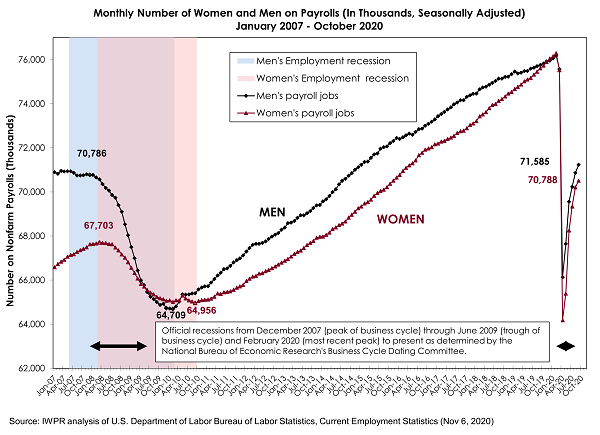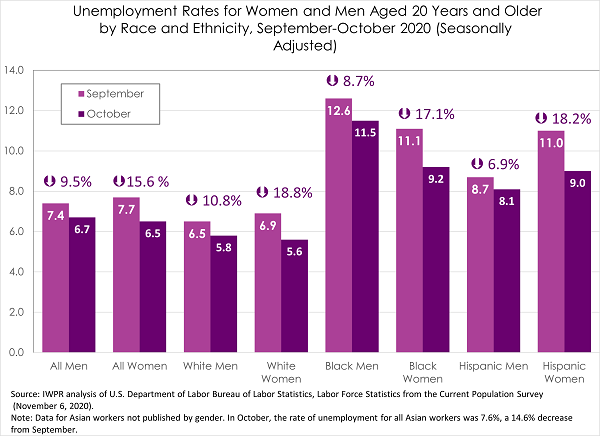
Millions of Americans have filed for unemployment since the COVID-19 virus made its way to our shores, creating a financial crisis and sending our economy spiraling. But the pandemic’s fallout has been far worse for women than men, according to the Institute for Women’s Policy Research.
Experts have dubbed the situation a “she-cession” – meaning that women have been hit harder economically than men.
“The She-cession is real, but truly, it's just magnifying a situation that we’ve already had for far too long in our country,” says Marie Thomasson, a wealth planner and founder of Modern Assets, an L.A.-based financial firm that serves women and their families.
Of those who have lost their jobs, 5.8 million were women versus 5 million who were men, and October jobs data show women remain 5.5 million jobs below February 2020 levels.

Women have been slower to gain jobs than their male counterparts, gaining just 280,000 of 638,000 new non-farm payroll jobs since October. The unemployment rate among women of color is particularly concerning: adult Black (9.2%) and Hispanic (9%) women.

So why are women suffering the worst in this pandemic? The main reason can be summed up in one word: children.
Women are three times as likely than men not to be working because of childcare issues. A large percentage of children are being educated via remote learning, and as a result, women who are working from home are seeing their productivity decrease due to childcare duties. And for many women who’ve lost their jobs, they can’t commit to new jobs until their children are back in school.
Another reason is that the industries that have been hardest hit by the pandemic – leisure, travel, hospitality, and education – are disproportionately staffed by women. The Child Care sector, for example, added just 8,000 jobs and is still at 83% of pre-COVID employment levels, while job losses in local government education total 97,800.



Commentaires